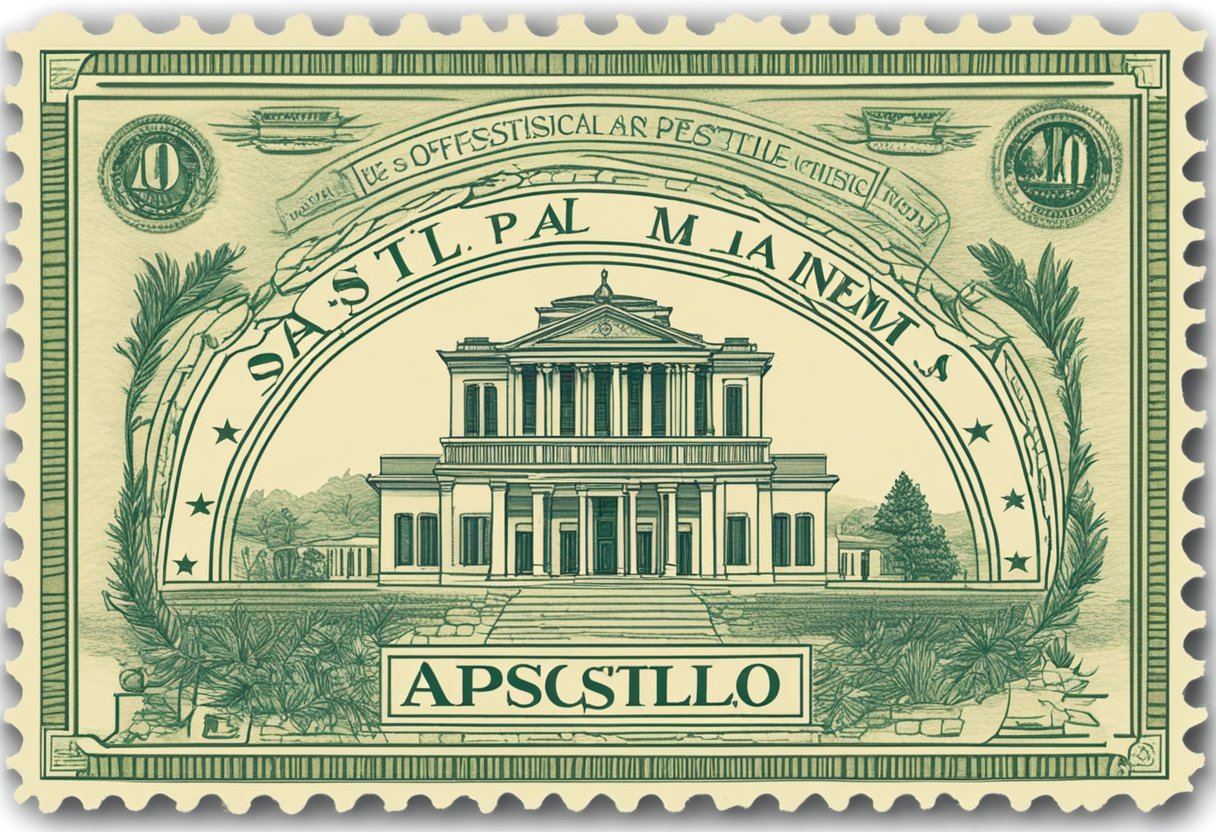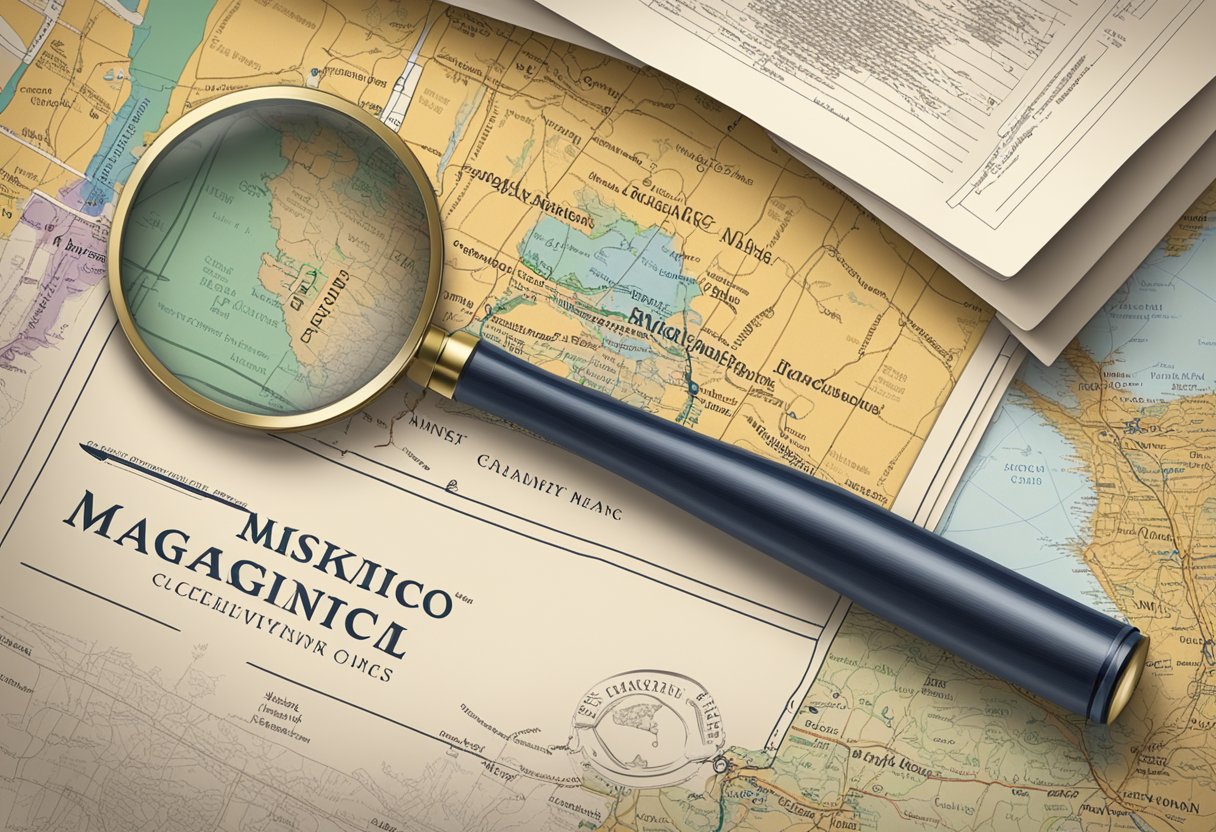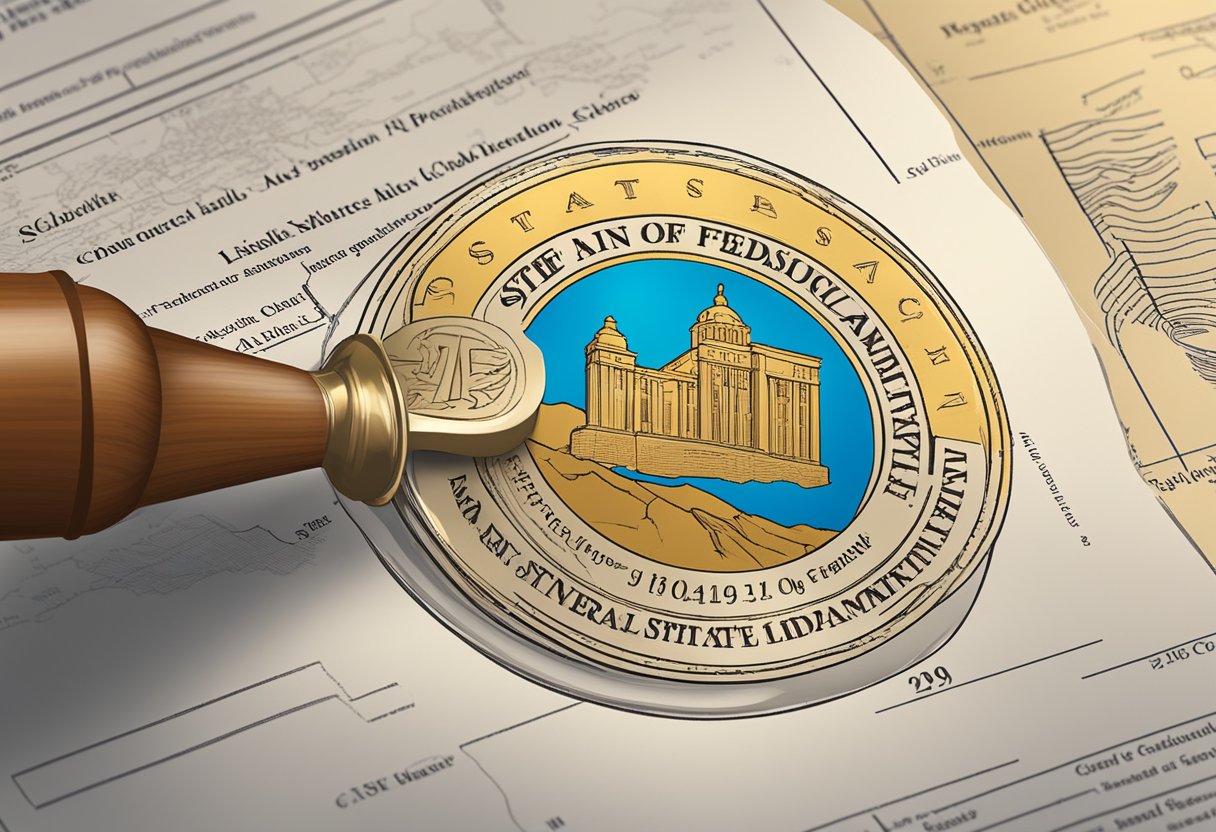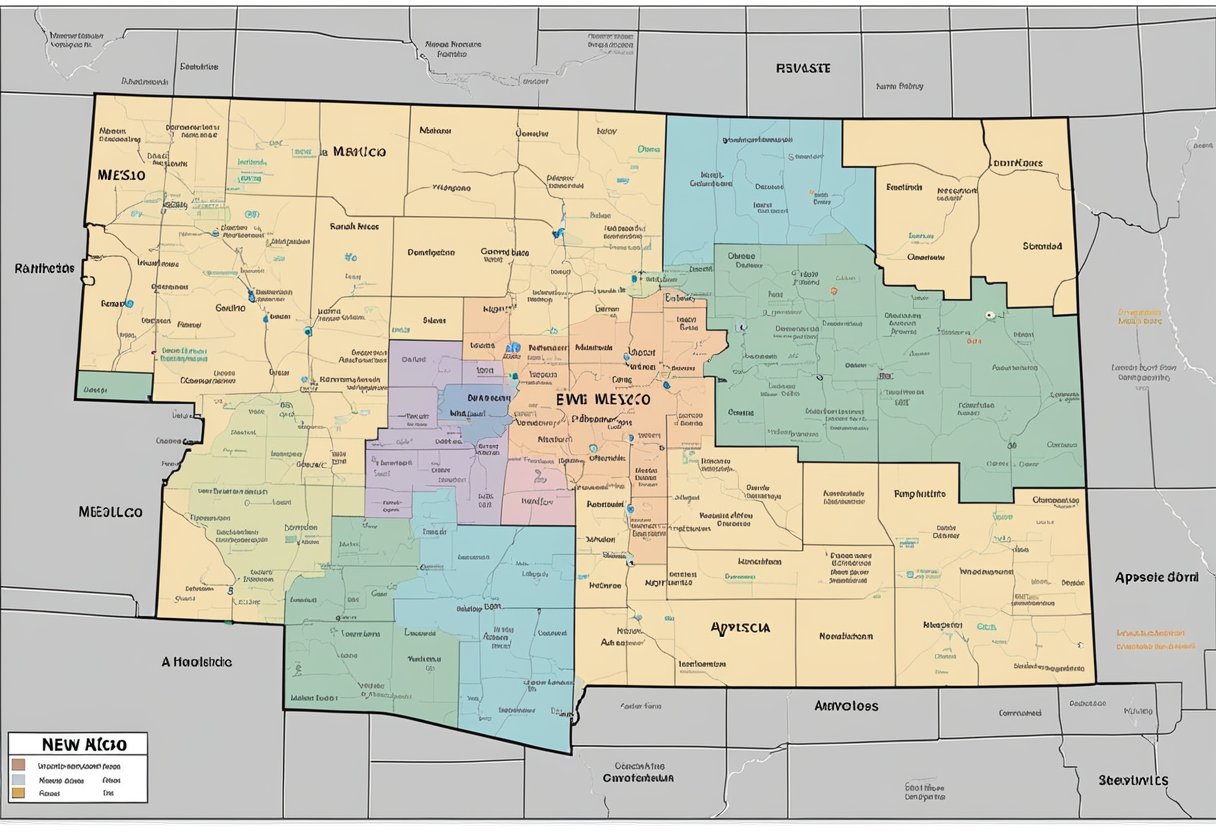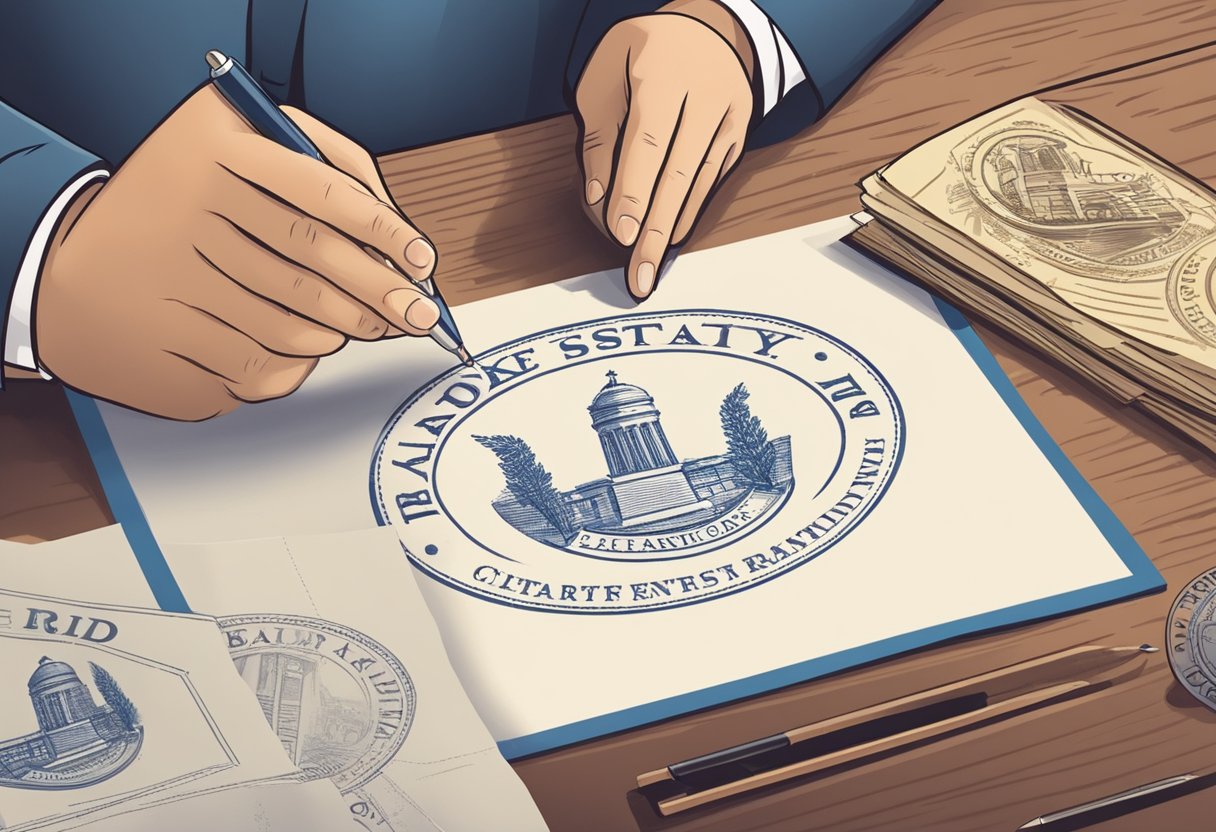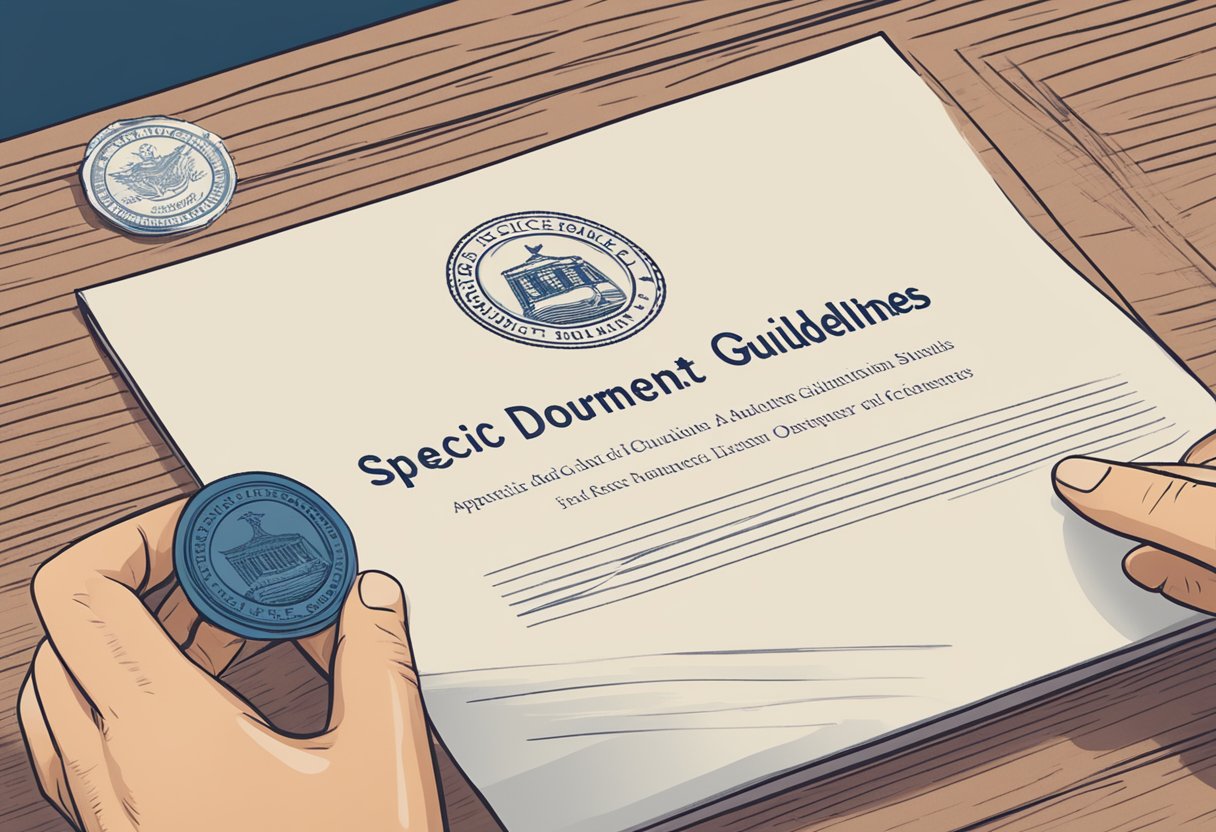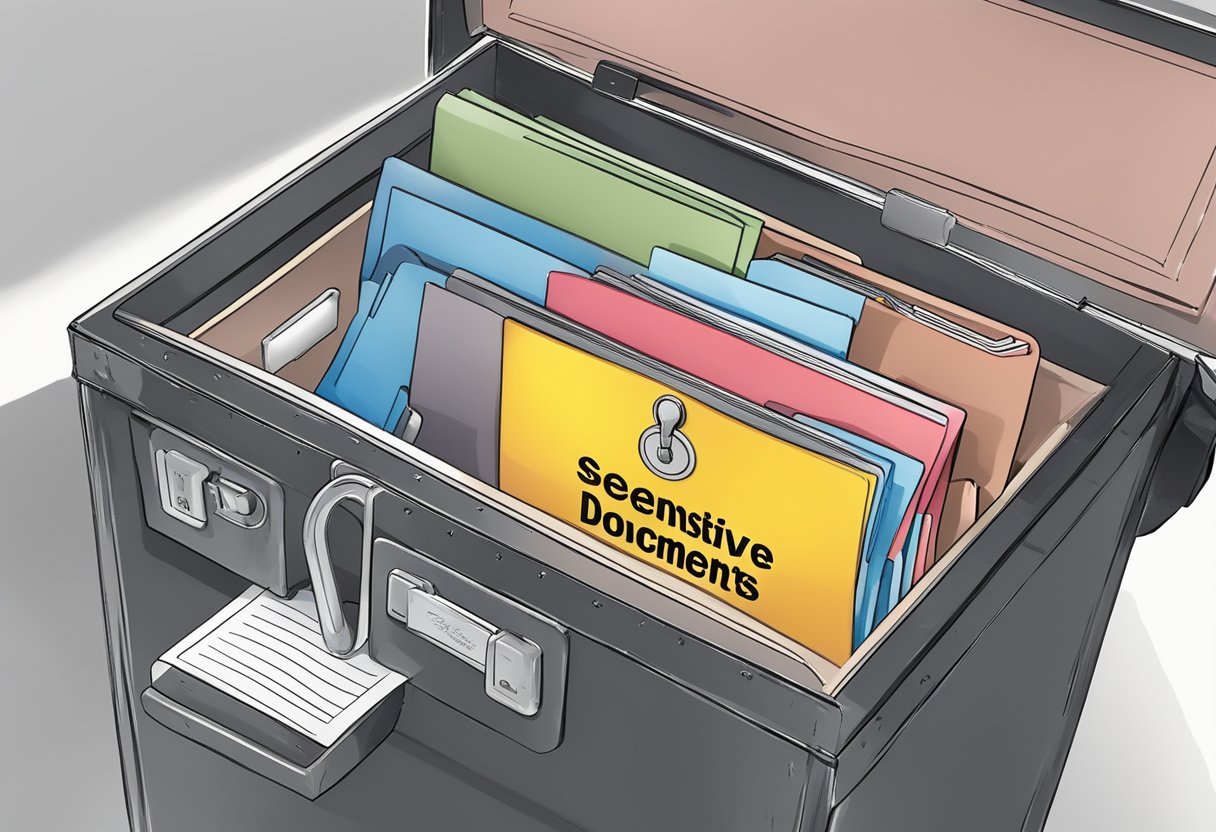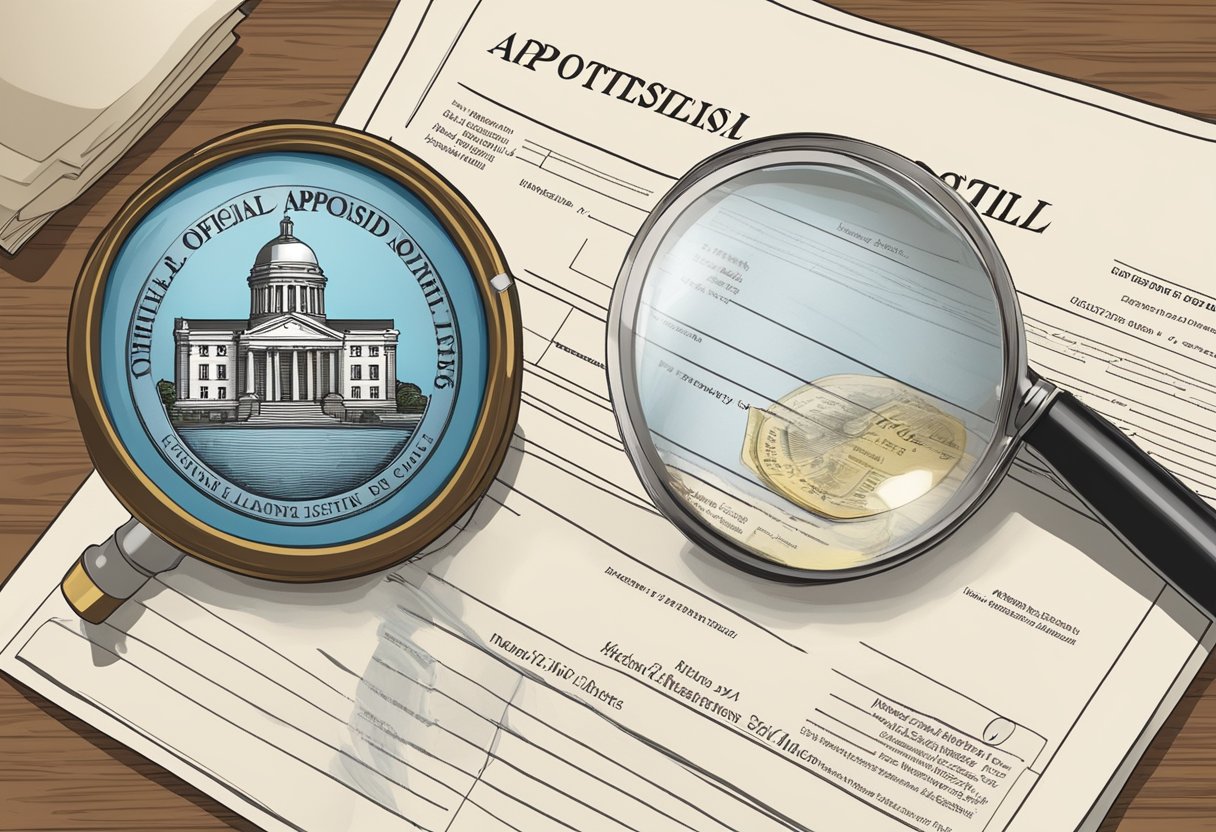New Mexico Secretary of State Apostille: How to Obtain and Authenticate Documents
If you need to authenticate a document for use in a foreign country, you may need to obtain an apostille from the New Mexico Secretary of State. An apostille is a certificate that verifies the authenticity of a public document, such as a birth certificate, marriage license, or diploma. The apostille certifies that the document is genuine and has been issued by a government agency.
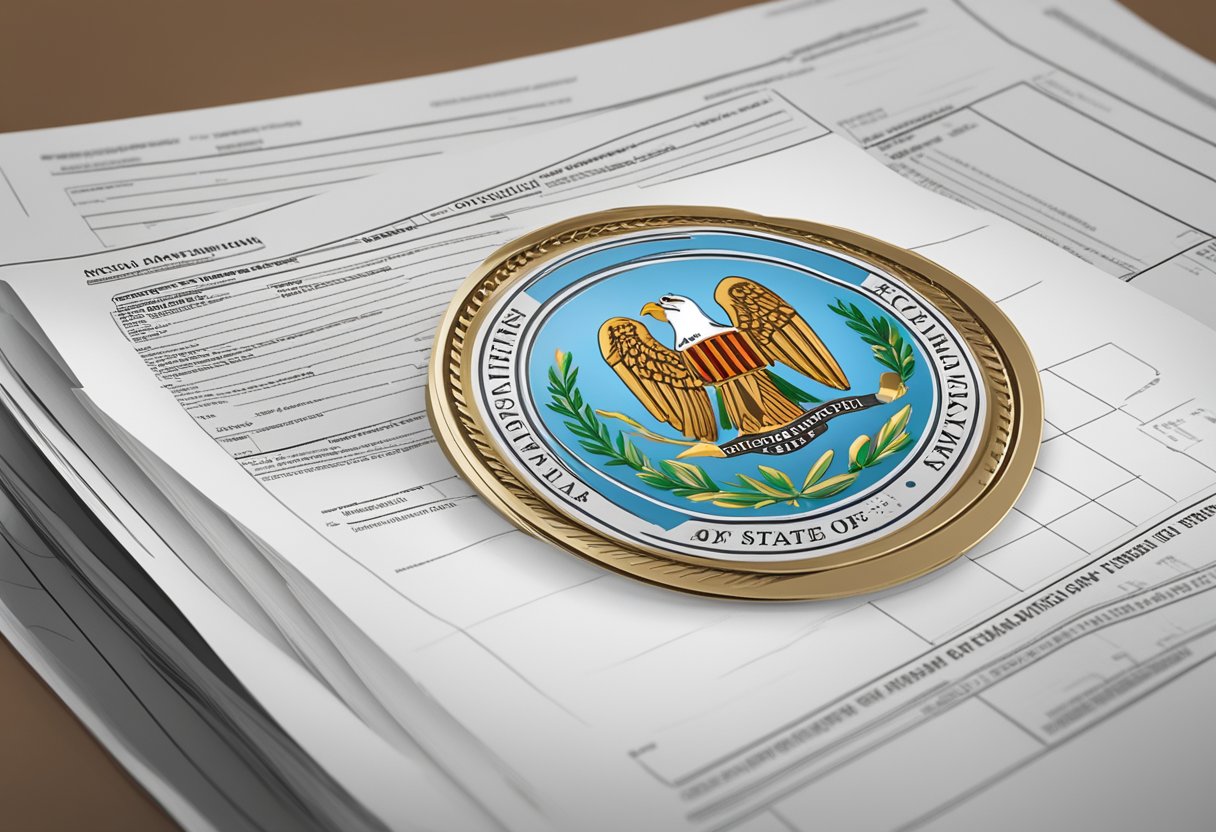
The New Mexico Secretary of State is responsible for issuing apostilles for documents that have been notarized or certified by a public official. The apostille verifies the authenticity of the signature and the capacity in which the person signing the document acted. The apostille also verifies the identity of the seal or stamp that appears on the document. The apostille does not verify the content of the document itself.
To obtain an apostille from the New Mexico Secretary of State, you will need to submit the original document to the Secretary of State’s office along with a completed apostille request form and the appropriate fee. The fee for an apostille is $3.00 per document. The Secretary of State’s office will process your request and return the apostilled document to you by mail. It is important to note that the Secretary of State does not provide notary services or notarize documents. You will need to have your document notarized by a licensed notary public before submitting it for an apostille.
Understanding Apostilles
If you need to use a document issued in the United States outside the country, you may be asked to get an apostille. In this section, you will learn what an apostille is, its purpose, and the Hague Convention and apostilles.
Definition and Purpose of Apostille
An apostille is a certificate that authenticates the origin of a public document, such as a birth certificate, marriage certificate, or a diploma. It is a form of certification that is recognized internationally, under the Hague Convention of 1961, to simplify the process of legalizing documents for use in foreign countries.
The purpose of an apostille is to verify the authenticity of the signature of the official who signed the document, and the capacity in which that official acted. The apostille also verifies the seal or stamp on the document.
The Hague Convention and Apostilles
The Hague Convention of 1961 is an international treaty that established a simplified method for the legalization of documents for use in foreign countries. The treaty abolished the need for diplomatic or consular legalization of public documents, and introduced the apostille as the only form of certification needed for public documents.
Under the Hague Convention, any document that has been issued by a public authority in one of the signatory countries can be authenticated with an apostille, and will be recognized as a legal document in any other signatory country.
In the United States, the Secretary of State is the authority that issues apostilles for public documents, such as birth certificates, marriage certificates, and diplomas. If you need an apostille for a document issued in New Mexico, you can contact the New Mexico Secretary of State office to obtain one.
To summarize, an apostille is a certificate that authenticates the origin of a public document, and is recognized internationally under the Hague Convention. The Hague Convention abolished the need for diplomatic or consular legalization of public documents, and introduced the apostille as the only form of certification needed for public documents.
Apostille Services in New Mexico

If you need to have a document authenticated for use in another country, an apostille may be required. The New Mexico Secretary of State’s office provides apostille services for documents issued in the state of New Mexico. In this section, you will learn about the role of the New Mexico Secretary of State in providing apostille services, the types of documents eligible for apostille, and the process for obtaining an apostille.
New Mexico Secretary of State’s Role
The New Mexico Secretary of State is responsible for authenticating public documents issued in the state of New Mexico. The Secretary of State’s office provides apostille services for documents that have been notarized by a New Mexico notary public, certified by a New Mexico court, or issued by a New Mexico state agency.
Types of Documents Eligible for Apostille
The following types of documents are eligible for apostille:
- Birth certificates
- Marriage certificates
- Divorce decrees
- Adoption decrees
- Diplomas and transcripts
- Power of attorney documents
- Corporate documents
Process for Obtaining an Apostille
To obtain an apostille for your document, you will need to follow these steps:
- Obtain a certified copy of your document from the issuing authority.
- Have the document notarized by a New Mexico notary public.
- Submit the notarized document to the New Mexico Secretary of State’s office along with the appropriate fee.
- Wait for the apostille to be issued.
The fee for an apostille is $3 per document. The processing time is typically 3-5 business days.
In summary, the New Mexico Secretary of State’s office provides apostille services for a variety of public documents issued in the state of New Mexico. To obtain an apostille, you will need to follow a specific process and pay a fee. By understanding the role of the New Mexico Secretary of State in providing apostille services, the types of documents eligible for apostille, and the process for obtaining an apostille, you can ensure that your document is properly authenticated for use in another country.
Notary Services in New Mexico
If you need notary services in New Mexico, you can turn to the New Mexico Secretary of State’s Business Services Division. This division oversees the state’s notary public program, which includes issuing notary public commissions, renewing commissions, and providing information about notarization and apostille certification.
Notary Public Commission
To become a notary public in New Mexico, you must meet certain eligibility requirements, including being at least 18 years old, being a resident of New Mexico or employed in the state, and not having been convicted of a felony. You must also complete a notary public application and take an oath of office.
Once you have been approved for a notary public commission, you will receive a certificate of appointment and a notary seal. You will also be required to purchase a surety bond, which is designed to protect the public from any errors or omissions you may make as a notary public.
Notarization and Apostille Certification
As a notary public in New Mexico, you are authorized to notarize documents, administer oaths, and certify copies of documents. If you need to have a document notarized, you can find a notary public in your area by searching the New Mexico Secretary of State’s database of notaries public.
If you need to have a document certified for use in another country, you may need to obtain an apostille certification. An apostille is a certificate that authenticates the signature and seal of a notary public or other public official. The New Mexico Secretary of State’s Business Services Division provides apostille certification for documents that are to be used in countries that are party to the Hague Convention.
To obtain an apostille certification, you will need to submit the original document to the Business Services Division along with a completed apostille request form and the appropriate fee. The Business Services Division will then attach the apostille certificate to the document and return it to you.
Business Services
If you are looking to start a business in New Mexico, the Secretary of State’s office is the place to go. They offer a wide range of services to help you get started and stay compliant with state regulations.
Business Registration and Certification
The Business Services Division of the Secretary of State’s office is responsible for overseeing the registration and certification of businesses in New Mexico. They offer a variety of resources to help entrepreneurs and small business owners navigate the process of starting and running a business.
One of the most important steps in starting a business is choosing the right legal structure. The Secretary of State’s office can help you determine whether you should register as a sole proprietorship, partnership, corporation, or limited liability company (LLC). They also provide information on how to register your business name, obtain a tax ID number, and apply for any necessary licenses or permits.
UCC Filings and Apostilles
The Business Services Division also handles UCC filings and apostilles. UCC filings are used to establish a security interest in personal property, such as equipment, inventory, or accounts receivable. The Secretary of State’s office maintains a database of UCC filings, which can be searched online.
Apostilles are certifications that are attached to legal documents, such as birth certificates, marriage licenses, and business agreements. They are used to verify that the document is authentic and can be recognized in another country. The Secretary of State’s office can issue apostilles for documents that are signed and notarized in New Mexico.
Whether you are starting a new business or need to file UCC paperwork or obtain an apostille, the Secretary of State’s office can help. Their knowledgeable staff can answer your questions and guide you through the process with confidence.
Legal and Governmental Information

If you need an apostille or authentication for your official document, you can get it from the New Mexico Secretary of State. Here are some legal and governmental information you should know:
Legislative Information and Chaptered Bills
The New Mexico Legislature is responsible for making laws that govern the state. You can find information about current and past legislative sessions, bills, and resolutions on the New Mexico Legislature website. If you are interested in a specific bill, you can search for it by its number or keyword. You can also sign up for email notifications to receive updates on legislative activity.
Address Confidentiality Program
If you are a victim of domestic violence, sexual assault, or stalking, the New Mexico Secretary of State offers an Address Confidentiality Program (ACP) to help protect your privacy. The ACP provides a substitute address that you can use for public records, such as voter registration and driver’s license. This program is free and available to eligible participants. You can find more information about the ACP on the New Mexico Secretary of State website.
Remember, it is important to follow the legal and governmental regulations when obtaining an apostille or authentication. For more information on the process, visit the New Mexico Secretary of State website.
Elections and Voter Information

As the New Mexico Secretary of State handles all election-related matters, the office is a go-to resource for voter information. Here are some key sections to be aware of:
Voter Registration and Hotline
The Secretary of State’s office provides a comprehensive guide to voter registration on their website. You can register to vote online, by mail, or in person. If you have any questions about the registration process, you can call the Voter Registration Hotline at 1-800-477-3632.
Election Results and Candidate Information
The Secretary of State’s office also provides up-to-date information on election results and candidate information. You can find information on past and upcoming elections, as well as candidate information and campaign finance disclosures. The website also has a search tool that allows you to find your polling place and view a sample ballot for your precinct.
In addition to the above resources, the Secretary of State’s office provides a voter hotline that you can call if you have any questions or concerns about voting or the election process. The hotline number is 1-800-477-3632.
Overall, the Secretary of State’s office is a valuable resource for anyone looking for information on voting and elections in New Mexico. Whether you need to register to vote, find your polling place, or learn more about candidates and election results, the office’s website and hotline have you covered.
Specific Document Apostilles
When it comes to obtaining an apostille for your documents, it is important to know which documents require an apostille and which do not. In this section, we will discuss the types of documents that require an apostille in New Mexico and how to obtain one.
Marriage Certificates and Divorce Decrees
If you need to use your marriage certificate or divorce decree in a foreign country, you will need to obtain an apostille. To do so, you will need to obtain a certified copy of your marriage certificate or divorce decree from the county clerk’s office where the marriage or divorce was filed. Once you have the certified copy, you can submit it to the New Mexico Secretary of State’s office to obtain an apostille.
Educational and Personal Documents
Educational and personal documents such as diplomas, transcripts, and background checks may also require an apostille if you need to use them in a foreign country. To obtain an apostille for these types of documents, you will need to obtain a certified copy of the document from the issuing institution, such as the school or agency that issued the document. Once you have the certified copy, you can submit it to the New Mexico Secretary of State’s office to obtain an apostille.
It is important to note that not all documents require an apostille. For example, documents that are notarized do not require an apostille. However, if you need to use a notarized document in a foreign country, you may need to obtain an apostille for the notary’s signature.
In conclusion, if you need to use a document in a foreign country, it is important to determine whether or not you need an apostille. If you do need an apostille, you will need to obtain a certified copy of the document and submit it to the New Mexico Secretary of State’s office to obtain the apostille.
Fees and Processing Time

If you need an apostille from the New Mexico Secretary of State, you will be required to pay a fee. The fee structure for apostilles is straightforward. The statutory fee for a certification of appointment or an apostille is $3.00 per document. You can pay this fee by check or money order made payable to New Mexico Secretary of State or NMSOS. You can also pay the fee online at https://enterprise.sos.nm.gov/ or in person at the Secretary of State’s office.
Apostille Fee Structure
The fee for an apostille from the New Mexico Secretary of State is $3.00 per document. This fee is non-refundable, even if your request is rejected. You must include your payment with your request, and it must be made by check or money order payable to New Mexico Secretary of State or NMSOS. You can also pay online or in person at the Secretary of State’s office.
Expected Timeframe for Apostille Services
Requests for apostilles from the New Mexico Secretary of State are processed daily by the Business Services Division. The expected timeframe for apostille services is 3-5 business days. However, the processing time may vary depending on the volume of requests received and the complexity of your request. If you need your apostille faster, you can request expedited service for an additional fee.
To ensure the security of your documents, the New Mexico Secretary of State requires that all requests for apostilles be submitted in writing. You can submit your request by mail or in person at the Secretary of State’s office. When submitting your request, be sure to include all required documents and payment. If you have a prepaid account with the Secretary of State’s office, you can use it to pay for your apostille request.
In summary, the fee for an apostille from the New Mexico Secretary of State is $3.00 per document, and the expected timeframe for apostille services is 3-5 business days. You can pay the fee by check, money order, online, or in person at the Secretary of State’s office. If you need your apostille faster, you can request expedited service for an additional fee.
Frequently Asked Questions
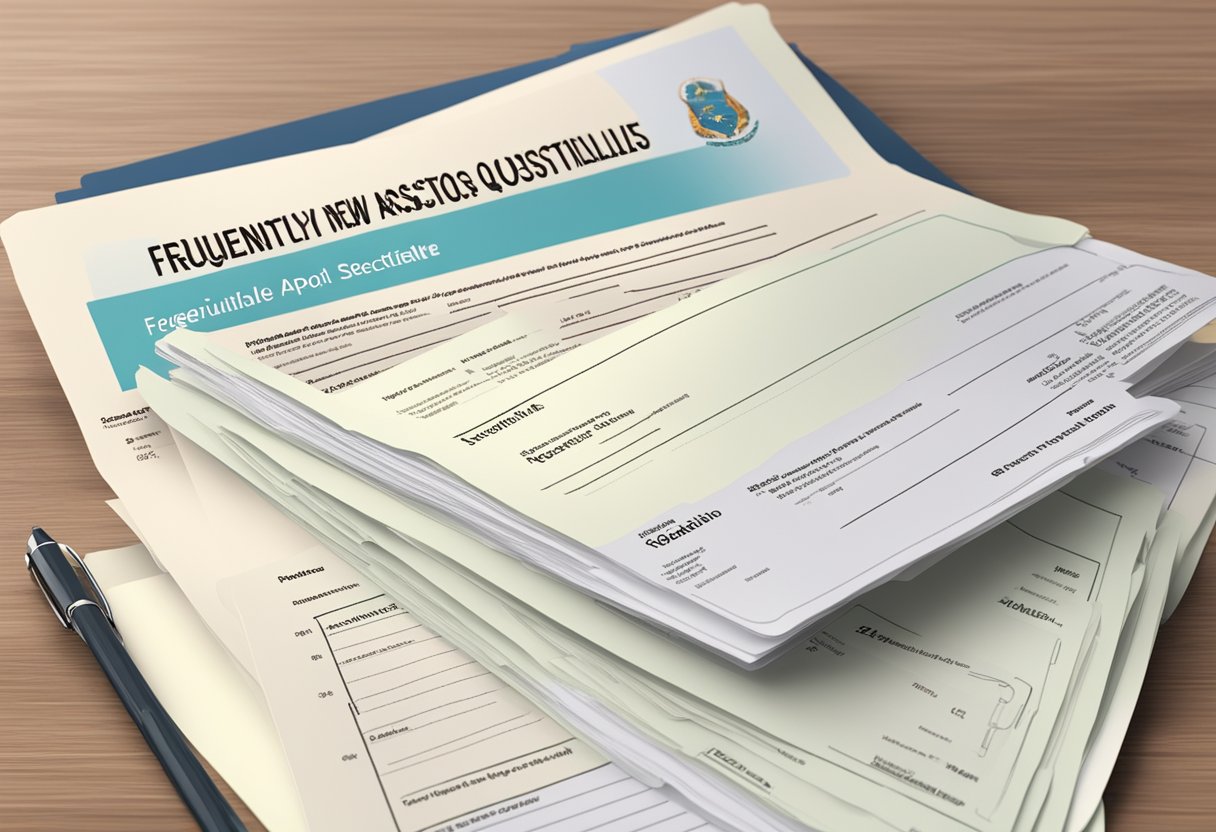
How can I obtain an apostille for a birth certificate in New Mexico?
To obtain an apostille for a birth certificate in New Mexico, you must follow the process outlined by the New Mexico Secretary of State. The apostille process is used to authenticate official documents for use in foreign countries. You can obtain an apostille for your birth certificate by submitting a request to the New Mexico Secretary of State’s office.
What is the process for requesting an apostille in New Mexico?
The process for requesting an apostille in New Mexico involves submitting a request form along with the original document that needs to be authenticated. The form can be downloaded from the New Mexico Secretary of State’s website or obtained in person at their office. Once the form and document have been submitted, the Secretary of State’s office will authenticate the document by affixing an apostille to it.
Where is the apostille service located in New Mexico?
The apostille service is located at the New Mexico Secretary of State’s office in Santa Fe. The office is located at 325 Don Gaspar Ave., Suite 300, Santa Fe, New Mexico, 87501. You can also submit a request for an apostille by mail or online through the Secretary of State’s website.
What documents are required to apply for a New Mexico apostille?
To apply for a New Mexico apostille, you will need to submit the original document that needs to be authenticated along with a completed apostille request form. The document can be a birth certificate, marriage certificate, educational transcript, or any other official document that needs to be used in a foreign country.
How long does it take to receive an apostille from the New Mexico Secretary of State?
The processing time for an apostille request in New Mexico is typically 2-3 business days. However, processing times may vary depending on the volume of requests received by the Secretary of State’s office.
What is the fee for obtaining an apostille in New Mexico?
The fee for obtaining an apostille in New Mexico is $3.00 per document. The fee must be paid by check or money order made payable to the New Mexico Secretary of State or NMSOS.

